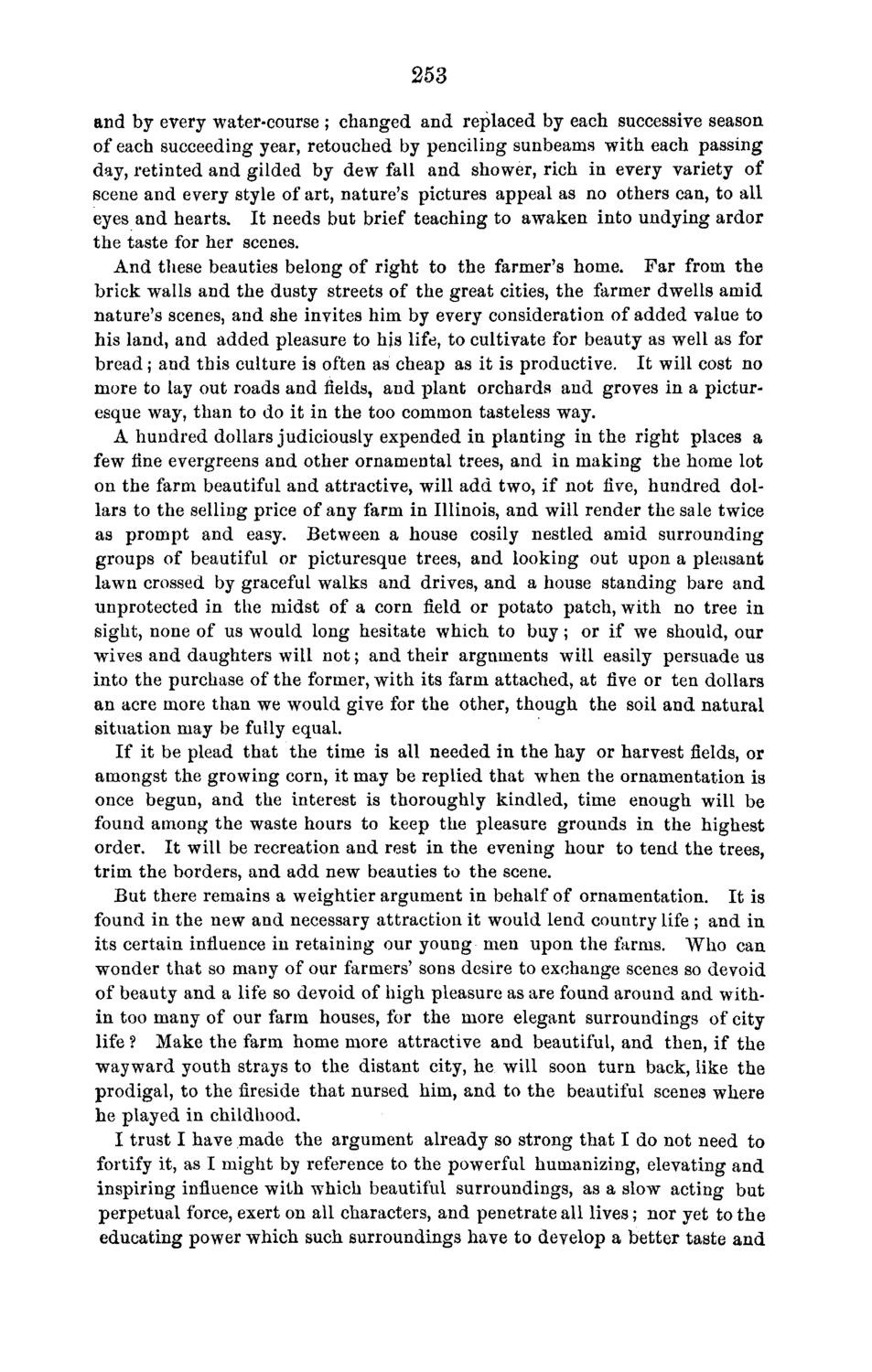| |
| |
Caption: Board of Trustees Minutes - 1870
This is a reduced-resolution page image for fast online browsing.

EXTRACTED TEXT FROM PAGE:
253 and by every water-course ; changed and replaced by each successive season of each succeeding year, retouched by penciling sunbeams with each passing day, retinted and gilded by dew fall and shower, rich in every variety of scene and every style of art, nature's pictures appeal as no others can, to all eyes and hearts. It needs but brief teaching to awaken into undying ardor the taste for her scenes. A n d these beauties belong of right to the farmer's home. F a r from the brick walls and the dusty streets of the great cities, the farmer dwells amid nature's scenes, and she invites him by every consideration of added value to his land, and added pleasure to his life, to cultivate for beauty as well as for b r e a d ; and this culture is often as cheap as it is productive. It will cost no more to lay out roads and fields, and plant orchards and groves in a picturesque way, than to do it in the too common tasteless way. A hundred dollars judiciously expended in planting in the right places a few line evergreens and other ornamental trees, and in making the home lot on the farm beautiful and attractive, will add two, if not five, hundred dollars to the selling price of any farm in Illinois, and will render the sale twice as prompt and easy. Between a house cosily nestled amid surrounding groups of beautiful or picturesque trees, and looking out upon a pleasant lawn crossed by graceful walks and drives, and a house standing bare and unprotected in the midst of a corn field or potato patch, w i t h no tree in sight, none of us would long hesitate which to b u y ; or if we should, our wives and daughters will n o t ; and their arguments will easily persuade us into the purchase of the former, with its farm attached, at G.ve or ten dollars an acre more than we would give for the other, though the soil and natural situation may be fully equal. If it be plead that the time is all needed in the hay or harvest fields, or amongst the growing corn, it may be replied that when the ornamentation is once begun, and the interest is thoroughly kindled, time enough will be found among the waste hours to keep the pleasure grounds in the highest order. I t will be recreation and rest in the evening hour to tend the trees, trim the borders, and add new beauties to the scene. But there remains a weightier argument in behalf of ornamentation. I t is found in the new and necessary attraction it would lend country life ; and in its certain influence in retaining our young men upon the farms. Who can wonder that so many of our farmers' sons desire to exchange scenes so devoid of beauty and a life so devoid of high pleasure as are found around and within too many of our farm houses, for the more elegant surroundings of city life ? Make the farm home more attractive and beautiful, and then, if the wayward youth strays to the distant city, he will soon turn back, like the prodigal, to the fireside that nursed him, and to the beautiful scenes where he played in childhood. I trust I have made the argument already so strong that I do not need to fortify it, as I might by reference to the powerful humanizing, elevating and inspiring influence with which beautiful surroundings, as a slow acting but perpetual force, exert on all characters, and penetrate all lives; nor yet to t h e educating power which such surroundings have to develop a better taste and
| |